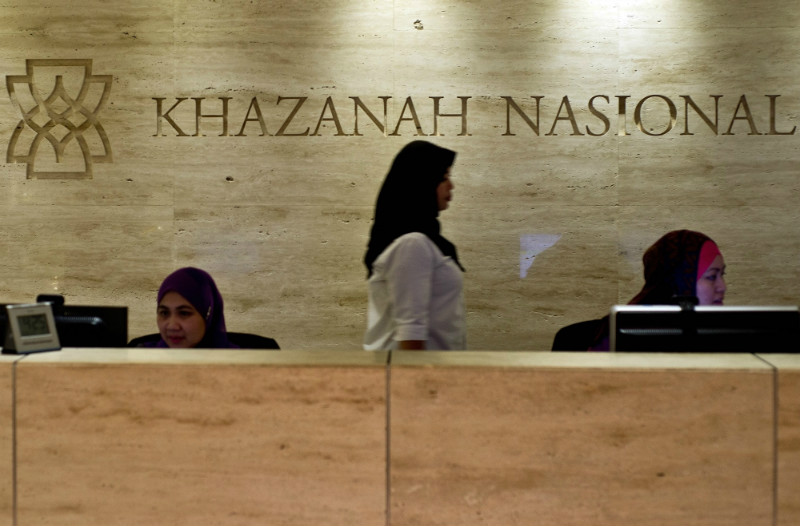The hefty remuneration raise in 2020 had come even as it registered over 60 per cent drop in investment returns for that year. — AFP pic
KUALA LUMPUR, Jan 25 — Khazanah Nasional Berhad’s reward for three of its executive directors and senior management members despite a drop in investment returns have raised eyebrows among several Opposition lawmakers.
Speaking to Malay Mail, the lawmakers harshly criticised the move and demanded for Putrajaya to explain the rationale behind it.
“The Khazanah board needs to explain why their executive directors’ remuneration was up by more than 200 per cent while remuneration for their key management personnel was up by more than 175 per cent,” said Lembah Pantai MP and PKR communications director Fahmi Fadzil.
“What is the justification for this extravagant level of expenditure, given the relatively poor investment returns?”
Khalid Samad, Shah Alam MP and a former minister, called the increment an “interesting policy” that warrants an explanation, noting the convention to move to raise salaries or reward bonuses only if a firm performs, when Khazanah has done otherwise.
“It’s something which is very questionable,” Khalid said in a reply to the Malay Mail.
“Khazanah should explain why it has done so. We don’t see any rationale or a logical explanation for such a policy,” he added.
“If it’s true that the remuneration has increased by more than double compared to the previous year, then it is something irresponsible and dumbfounding.”
The hefty remuneration raise in 2020 had come even as it registered over 60 per cent drop in investment returns for that year.
The sovereign wealth fund posted just RM2.9 billion in profits in 2020, a drop of over 60 per cent from the RM7.4 billion posted the year before as the novel coronavirus crisis weighed on investments and paralysed the global economy.
But that same period Khazanah gave its executive directors and senior executives perks amounting to close to double — up to RM4.8 million in remuneration, up from RM2.6 million in 2019, according to its annual financial report made public recently.
Total remuneration for its senior executives increased to RM45.3 million from RM25.6 million.
The focus of scrutiny will likely fall on then prime minister Tan Sri Muhyiddin Yassin and current Finance Minister Datuk Seri Tengku Zafrul Abdul Aziz, the key decision makers with the power to raise or lower how much executives at government-linked investment funds get paid.
Muhyiddin sat as a board director during his short tenure as premier, while Tengku Zafrul is still a board member.
Under Barisan Nasional rule, top leaders of the ruling coalition are often made board members of government-linked investment companies (GLICs) and government-linked companies (GLCs) by default, a practice that the Pakatan Harapan administration had tried to curb during its 22 months in power.
But that culture was reinstated when it was ousted by the power grab that helped install the Muhyiddin-led Perikatan Nasional bloc into power. Muhyiddin’s place in Khazanah has since been replaced by current Prime Minister Datuk Seri Ismail Sabri Yaakob.
The increment also came at the time when the debate around wealth and income inequality had been intensified by the pandemic.
In a column critical of the raise, Datuk Kadir A Jasin, former press liaison chief of two-time prime minister Tun Dr Mahathir Mohamad, said Khazanah dished the perks when close to 100,000 people had lost their income because of the movement restrictions imposed to curb a raging coronavirus.
“Its top management enjoyed RM45.3 mil in remuneration and EPF contribution, as opposed to RM25.6 mil the year before, at a time where almost 100,000 people lost their income due to the movement restrictions,” he wrote for a column in Malay daily Sinar Harian.
Kadir also suggested that the increment underscored an entrenched culture nurtured by decades of corruption by senior members of previous administrations.
“I guess the civil servants and top leadership of our government-linked companies and government-linked investment companies are just following the government’s audacious habits,” he wrote.
“If our bosses behave in such a way, why not us too? This rash behaviour has become institutionalised across the board.”
Khazanah has yet to issue a statement on the matter, and did not respond to Malay Mail‘s request for comment.

